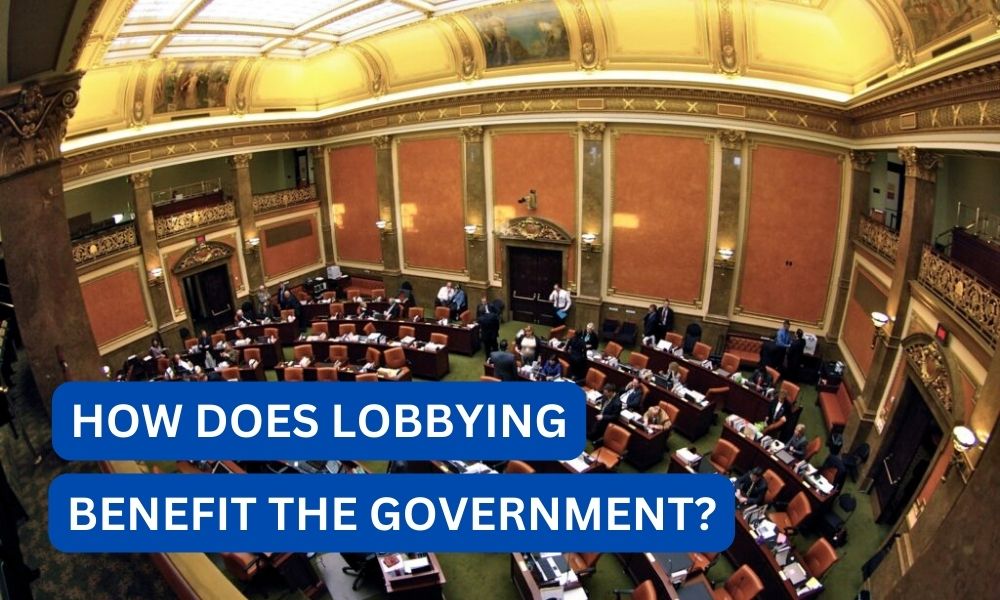Lobbying is a term that often carries a negative connotation, associated with backroom deals and corrupt practices. However, lobbying is an essential part of the democratic process and plays a crucial role in shaping government policies and decisions. In this article, we will explore the concept of lobbying and how it benefits the government.
Contents
Understanding Lobbying
Lobbying is the act of attempting to influence government decisions and policies by individuals or groups representing a particular interest. These interests can range from corporations and trade associations to non-profit organizations and advocacy groups. Lobbyists are hired by these entities to advocate for their interests and promote their agenda to government officials.
While lobbying is often associated with the United States, it is a common practice in many countries around the world. In the US, lobbying is regulated by the Lobbying Disclosure Act of 1995, which requires lobbyists to register with the government and disclose their activities and expenditures. This transparency allows for a better understanding of the lobbying process and ensures that it is conducted ethically and within legal boundaries.
The Benefits of Lobbying for the Government
Contrary to popular belief, lobbying can bring several benefits to the government. Here are some of the ways in which lobbying benefits the government:
Read:What will my grandchild call me?- Access to Information: Lobbyists are experts in their respective fields and have a deep understanding of the issues they are advocating for. They provide valuable insights and information to government officials, helping them make more informed decisions. This access to information is especially crucial for complex and technical issues that may be outside the expertise of government officials.
- Representation of Diverse Interests: Lobbying allows for the representation of diverse interests in the policymaking process. Government officials cannot possibly be experts on every issue, and lobbying provides a way for different perspectives to be heard and considered. This ensures that policies are not one-sided and take into account the needs and concerns of various stakeholders.
- Efficient Decision-Making: Lobbying can help streamline the decision-making process for the government. With the help of lobbyists, government officials can quickly gather information, analyze different viewpoints, and make decisions that are in the best interest of the public. This efficiency is especially crucial in times of crisis when quick and effective decision-making is necessary.
- Expertise and Resources: Lobbyists often have extensive knowledge and resources at their disposal, which can be beneficial for the government. They can provide research, data, and analysis to support their arguments and help government officials make evidence-based decisions. Additionally, lobbyists can also provide financial support for government initiatives, reducing the burden on taxpayers.
- Checks and Balances: Lobbying serves as a check and balance on the government’s power. By advocating for their interests, lobbyists can hold the government accountable and ensure that policies are not made without considering all perspectives. This helps prevent the government from becoming too powerful and making decisions that may not be in the best interest of the public.
Real-World Examples of Lobbying’s Impact on Government
To better understand the benefits of lobbying, let’s take a look at some real-world examples of how lobbying has influenced government decisions and policies.
Read:What are keto blast gummies?The Affordable Care Act (ACA): The ACA, also known as Obamacare, was a highly controversial healthcare reform bill that was passed in 2010. The healthcare industry, including insurance companies, hospitals, and pharmaceutical companies, spent millions of dollars on lobbying efforts to influence the bill’s outcome. As a result, the final bill included provisions that were favorable to these industries, such as the individual mandate and the expansion of Medicaid. Without the lobbying efforts of these industries, the ACA may have looked very different.
Net Neutrality: In 2015, the Federal Communications Commission (FCC) passed the Open Internet Order, which established net neutrality rules to ensure that all internet traffic is treated equally. This decision was heavily influenced by lobbying efforts from internet service providers (ISPs) who were against net neutrality. These ISPs argued that net neutrality regulations would stifle innovation and investment in the industry. However, lobbying efforts from advocacy groups and tech companies, such as Google and Netflix, helped push for the implementation of net neutrality rules. In 2017, the FCC, under a new administration, repealed the Open Internet Order, highlighting the impact of lobbying on government decisions.
Environmental Policies: Lobbying has played a significant role in shaping environmental policies in the US. For example, the oil and gas industry has spent millions of dollars on lobbying efforts to influence policies related to climate change and energy production. These efforts have resulted in favorable policies for the industry, such as tax breaks and relaxed regulations. On the other hand, environmental advocacy groups have also used lobbying to push for stricter regulations and policies to protect the environment.
Read:What are they building on willow pass road?The Downside of Lobbying
While lobbying can bring several benefits to the government, it is not without its downsides. Here are some of the potential negative impacts of lobbying:
- Corruption and Conflicts of Interest: One of the most significant concerns with lobbying is the potential for corruption and conflicts of interest. Lobbyists may use unethical practices, such as bribery, to influence government decisions. Additionally, there is a risk of government officials being swayed by lobbyists who have personal or financial ties to them.
- Unequal Representation: Lobbying can also lead to unequal representation, where the interests of powerful and wealthy groups are prioritized over those of the general public. This can result in policies that benefit a select few rather than the entire population.
- Excessive Influence: In some cases, lobbying can lead to excessive influence, where the interests of a particular group or industry hold more weight than others. This can result in policies that are not in the best interest of the public but rather serve the interests of a few powerful entities.
The Role of Transparency in Lobbying
As mentioned earlier, lobbying is regulated in the US to ensure transparency and prevent unethical practices. However, there have been calls for more stringent regulations to address the potential negative impacts of lobbying. One such proposal is the Lobbying and Ethics Reform Act, which aims to increase transparency and accountability in lobbying activities. This act would require lobbyists to disclose more information, such as their clients, the issues they are lobbying for, and their expenditures. It would also impose stricter penalties for violations of lobbying regulations.
Transparency is crucial in lobbying as it allows for a better understanding of the process and helps prevent corruption and conflicts of interest. It also allows the public to hold lobbyists and government officials accountable for their actions.
Conclusion:
Lobbying is a complex and often controversial practice, but it plays a crucial role in the democratic process. It allows for the representation of diverse interests and provides valuable information and resources to government officials. However, there are also potential downsides to lobbying, such as corruption and unequal representation. To ensure that lobbying benefits the government and the public, it is essential to have transparency and accountability in the process. As long as lobbying is conducted ethically and within legal boundaries, it can bring significant benefits to the government and the public as a whole.









